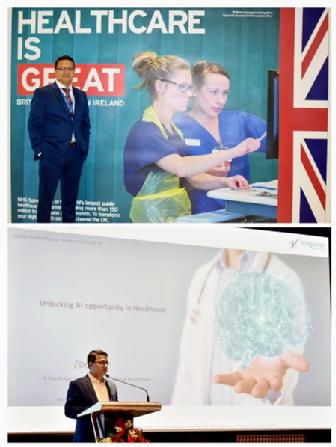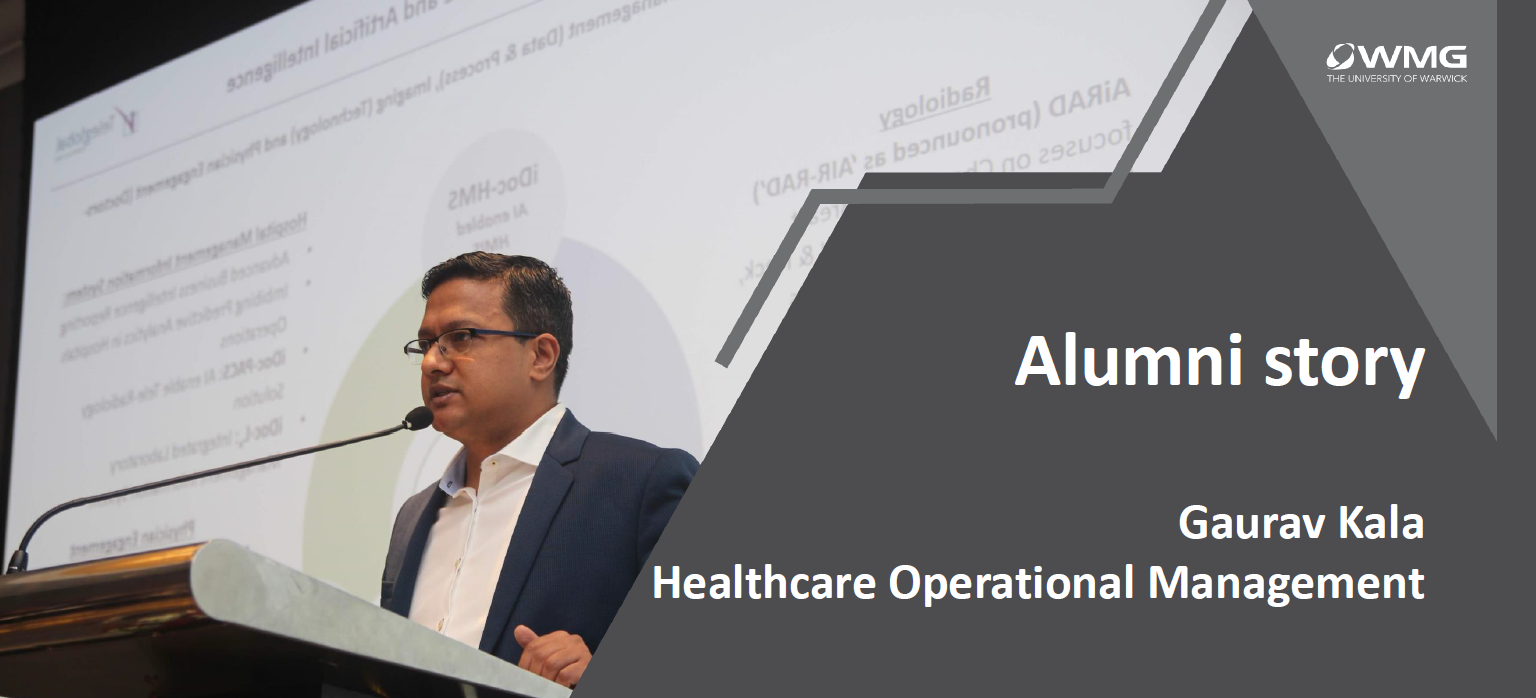Artificial Intelligence in Healthcare
“Digital healthcare will revolutionise the landscape”
How this WMG graduate is using artificial intelligence to transform lives
Even the most expert doctor finds trawling through several thousand pathologies slides a challenge.
This and many other tasks in healthcare could become much easier though with artificial intelligence (AI).
Which is why digital healthcare pioneers like Gaurav Kala are attempting to harness AI’s potential – and save lives.
The chief strategy officer and his 17-strong team at iDoc.ai, a Teleglobal Consulting digital health initiative, are developing innovative AI-powered solutions that enable early detection of ailments. Their vision is to transform the diagnosis of potentially fatal conditions such as breast tumours or tuberculosis and provide a digital platform to connect patients with clinicians.
‘The possibilities for AI intervention are huge,’ says the new entrant in deep learning space who has an MSc in Healthcare Operational Management developed by WMG's Institute of Digital Healthcare in collaboration with Warwick Medical School and the NHS.
‘It’s like the internet of the 1990s – you never know where it might lead.

‘You can’t supplant human intelligence. But AI can assist clinicians to detect diseases like cancer and diabetes with greater accuracy, and change their prognosis and management. AI could assist in addressing the issues of shortage healthcare resources with augmenting the capabilities of care delivery in imaging, diagnostics and precision medicine.
Essential to this go-getter’s success is turning proposals into action, a skill acquired at WMG and which helped him ‘crack’ his first job in the UK.
At WMG, the pedagogy of real-life case studies infuses the skills to design solutions within the constraints of time, availability of clinicians and cost. Tutors would give him real-life scenarios to solve, such as devising a plan to address 4-hour A&E care target at NHS or interventional framework to strengthen the two-hour clinical pathway for stroke patients.
These often life and death cases helped Gaurav ‘develop and challenge’ his thinking process. They required him to go back to researches done in the past, to challenge the status quo, and find a solution on his own. Also invaluable was receiving detailed feedback from tutors with industry experience – ‘They know how to handle difficult questions and connect all the dots.’
The course enabled Gaurav to achieve his primary goal of changing career path.
Before, he was working in healthcare strategy and operations. Today, he is engaged in developing solutions to address accessibility and affordability problems in care delivery through the deployment of technologies including deep learning and intervention-based health.
He says: ‘I was getting bored doing repetitive work creating business plans for hospitals. There’s no doubt the MSc has boosted my career which is now aligned with future technologies. Everyone is talking about digital healthcare – it’s going to revolutionise the landscape over the next decade.’
He is now driven with a mission to ‘democratise’ healthcare. To create solutions that can improve outcomes and ‘make a difference’ for everyone in society including the poorest and those with mental health issues. With his learning gained at WMG, Gaurav is more than capable of turning this ambition into action for a healthier and happier world.

